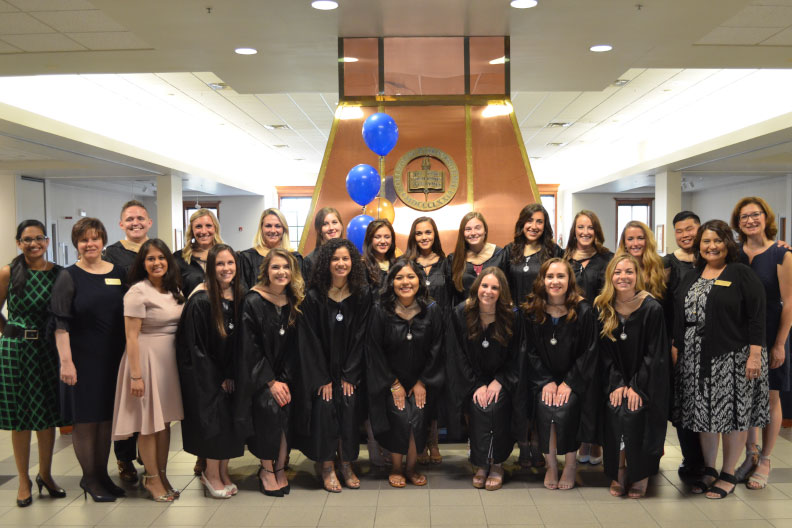
Elmhurst College’s inaugural class of occupational therapy graduate students participated in their pinning ceremony on Saturday, July 28, officially making the transition to the professional phase of their education.
The 18 students in the Master of Occupational Therapy cohort took the pledge for their profession and received their pins during the ceremony, held in the Founders Lounge with about 160 family and friends on hand to help them celebrate.
“As you reach this juncture in your graduate education, you have been challenged to reflect on the work you do, ask hard questions, and fully understand the impact you have on your colleagues, your families, and the organizations you will serve as health professionals,” said April Edwards, vice president of academic affairs and dean of the faculty. “Your faculty and advisors have ensured that you did the hard work required so you are prepared for this moment of transition. As you graduate, you are prepared to take on leadership roles in organizations large and small!”
The students now have completed the academic requirements of the Master of Occupational Therapy program. After receiving their transcripts in August, they can apply to take the national board exams for certification.
The class had a 100 percent retention rate, meaning that the students all started and finished the two-year program together. They also passed their fieldwork together, a rate that is far above the industry average.
“When they went out in the field, the clinicians marveled at the quality of the students and their skills,” said Elizabeth Wanka, program director of the Master of Occupational Therapy Program. “Not only are they very smart, but also very practical, and able to do all the critical reasoning required in their fieldwork.”
While that accomplishment was “pretty incredible,” it wasn’t all that surprising because of how well faculty prepared the students—and how well the students prepared themselves, Wanka said. “I’m so impressed with the students,” she said. “Because they’re very serious about the profession, they want to do the work they need to do, and spent many hours over and above what’s expected to learn the material.”
Now that the students have had a taste of what their work is all about, they’re newly inspired to become practitioners, she said. “They’ve come back from their fieldwork and are so proud to be making a difference—to actually see what it’s like to work with somebody, and see that what they’re doing is so meaningful to their client.”